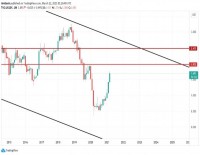|
REGULATORS & COURTS Regulatory Sea Change May Hit Futures Commodity trading advisors and pool operators in the United States potentially face new laws and rules on several fronts. While none of these have yet been finalized, significant changes in regulation are likely. In January, US senators Carl Levin (D-Michigan) and Chuck Grassley (R-Iowa) introduced the Hedge Fund Transparency Act of 2009, with the goal of addressing “loophole in securities law that allows hedge funds to operate under a cloak of secrecy” as the two senators put it. Despite appearing to target hedge funds, this bill would also involve other types of investment funds unless its provisions are changed. It would have a significant impact on anybody running investments through a private investment vehicle, says Ron Geffner of law firm Sadis & Goldberg LLP. The bill covers any fund that relies on exemptions based on sections 3(c)(1) and 3(c)(7) of the Investment Company Act and has more than $50 million in assets. Mr. Geffner said the proposed legislation in its current form does not exempt CPOs so they would be affected, but there needs to be greater clarity. CTAs have long been regulated under the Commodity Exchange Act, which is largely similar to the Investment Advisors Act of 1940. The proposed HFTA, however, focuses on funds rather than investment advisors. To be exempt from mutual fund requirements, a firm would have to register with the Securities and Exchange Commission, file an annual information form, maintain books and records as required by the SEC and cooperate with SEC examiners. One radical departure from past is that the bill requires the disclosure of the identities of the investors in the fund. “I find this requirement rather offensive,” Mr. Geffner said. “After all, the names of investors in mutual funds, for instance, are not published.” In addition, HFTA would mandate information about the structure of ownership interests, affiliations with other financial institutions and assets under management. Position Limits Another proposed legislation impinges on futures markets. Last month the House Agriculture Committee approved the Commodity Markets Transparency and Accountability Act 2009 and sent it to the House Financial Services Committee. Levin has introduced a similar bill in the Senate. Both bills instruct the Commodity Futures Trading Commission to set binding position limits for all commodity contracts while reducing the Commission's ability to grant exemptions. Some version is almost certain to pass, given popular resentment against what is seen as manipulative speculation in commodities, an impression created by high energy prices in the first half of 2008. Gary Gensler, President Barack Obama's nominee to head the CFTC, wrote in a letter to senators that if confirmed by the Senate, he looks “forward to working with Congress, my fellow commissioners and other regulators to consider appropriate capital requirements, business-conduct standards, and other rules for derivatives dealers.” He promised to institute position limits on futures trading as well other measures such as moving over-the-counter derivatives to exchanges and looking more closely into hedge funds, electronic markets and foreign exchanges operating in the US. Mr. Gensler is against the merger of the CFTC with the SEC, an idea that has been advocated on grounds that a unified agency would be a more effective supervisor. If the CFTC were combined with the SEC, CTAs and CPOs would lose their long-time regulator and perhaps become subject to the same rules as all registered investment advisors. Even without a merger, the two regulators signed a cooperation agreement about a year ago to establish a closer working relationship. Under this agreement, they share information and work together in regulating new products that may have elements of both securities and commodity futures or options. Other Proposals Regulatory proposals continue to come from other quarters. The CFTC recently welcomed recommendations by the International Organization of Securities Commissions, which argued for improved supervision of commodity futures markets and better global cooperation towards this end. The IOSCO identified factors that potentially inhibit access to information needed to understand price formation in a particular futures contract and hence hinder the ability of futures regulators to monitor and detect manipulation. In particular, regulators may need data about deals in physical commodities and over-the-counter transactions. The organization called for periodic meetings among futures market regulators to air concerns on market trends and developments and share surveillance and enforcement techniques. Meanwhile, the CFTC is accepting comments on two rules it proposed in February. One is about the periodic account statements CPOs are required to provide to their clients and file with the National Futures Association. The new rule specifies the detailed information that must be included in the account statements for commodity pools with more than one series or class of ownership interest and clarifies other issues such as the disclosure of net asset value and the proper accounting treatment of certain income and expense items. The second proposed rule open to public commentary specifies requirements for the acknowledgment letters that futures commission merchants must obtain from any depository that holds segregated customer funds or funds of foreign futures or options customers. Comments can be sent to secretary@cftc.gov.CFTC acting chair Michael Dunn has been talking about the urgent need for increased funding for the Commission so that it can fulfill its regulatory duties. In the budget passed last month, Congress allocated $146 million to the agency. Mr. Dunn applauded the significant increase over past budgets. “I strongly believe that with today's action, the Congress has demonstrated an appreciation for the Commission's need for additional funding,” he said in a statement. “With these additional funds the CFTC will be able to better protect the futures markets and the customers who use them from fraud and abuse.” |
|
This article was published in Opalesque Futures Intelligence.
|





 RSS
RSS











